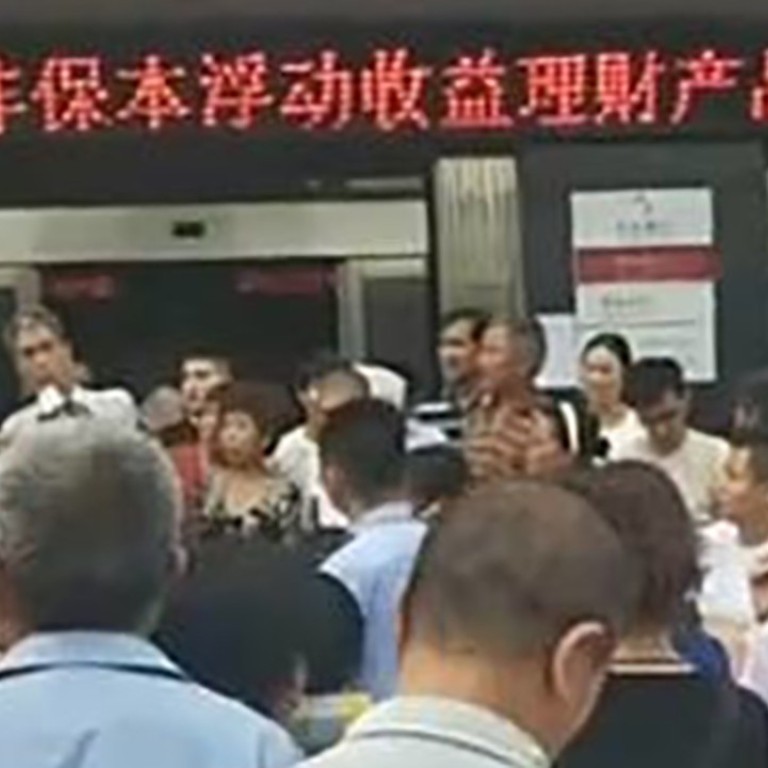
In sign of financial stress, gossips cause a rare bank run in China
Police detain employees at a local agricultural firm for spreading rumours that the local branch of the lender in Shandong province was in financial trouble
A rare run on a bank has occurred in eastern China, with hundreds of depositors trying to withdraw their cash from a local branch, reflecting the fragility and risks in the nation’s financial system.
Linshang Bank, a lender with 61 billion yuan (US$9.1 billion) in deposits, said in a brief statement on its website that the spate of withdrawals at one of its branches in Linyi in Shandong province on Monday was caused by “a few individuals spreading rumours” that the bank was in trouble.
The lender urged the public “not to believe in or spread rumours to jointly maintain good financial order”.
An official in the bank’s general affairs office told the South China Morning Post on Thursday the situation was now back to normal. A clerk at the bank’s Bancheng branch also said normal operations had resumed.
“Our branch managers have been explaining to our clients ... and most clients left the branch without withdrawing money after they knew it was just untrue gossip,” the clerk said.
The police authority said in a statement on Monday that it had detained three people, questioned 11 and issued warnings to eight over the spreading of gossip about the bank. The authorities news website reported later on Tuesday that five people were detained.
Media reports said a few employees at Shandong Sanwei Oil Group, an agricultural processing company, were unhappy after they were placed on leave when production lines were closed at the firm.
The employees spread a rumour that the firm was collapsing with billions of yuan in unpaid loans and that it might also bring down Linshang Bank, the report added.
The rumour spread quickly among residents, triggering a run on the local branch of the bank, according to the article. At one point more than 500 depositors gathered outside the branch demanding to withdraw their money.
Linshang Bank’s latest annual report says its ratios for capital and non-performing loans all meet regulatory requirements and are within safe limits.
The bank also reported 442 million yuan in net profit in 2016, a slight drop from 444 million yuan the previous year. The bank was set up in 1998 and has 89 branches in Shandong and Zhejiang provinces, with 2,200 staff. By the end of 2016, it has deposits of 61 billion yuan and lent 45.6 billion yuan, the lender said on its website.
Financial stability has been listed as a top economic priority by central government leaders as China’s levels of government, corporate and household debt now total 300 per cent of its gross domestic output.
Regional banks in less developed areas are regarded as the weak links in China’s financial system as lenders often give large loans to local enterprises and may expose themselves to greater risks if local economic growth slows.
A rumour that a rural lender in Sheyang county in Jiangsu province had run out of money three years ago triggered a three-day run on the bank, which forced it to place stacks of cash behind teller windows to ease depositors’ panic.
It came as China’s financial markets saw the country’s first bond default, shaking the long-held view that the government would always ultimately provide a bailout to prevent the collapse of financial products and institutions.
China’s monetary easing and financial deregulation over the past decade has prompted some local governments to set up their own banks.
Other scandals and irregularities have been exposed by the China Banking Regulatory Commission, but no local banks have been forced to close over the past decade.
China’s central bank launched a deposit insurance system in May 2015, adopting Western-style protection for depositors. The maximum payout level is set at 500,000 yuan per depositor for each bank.

